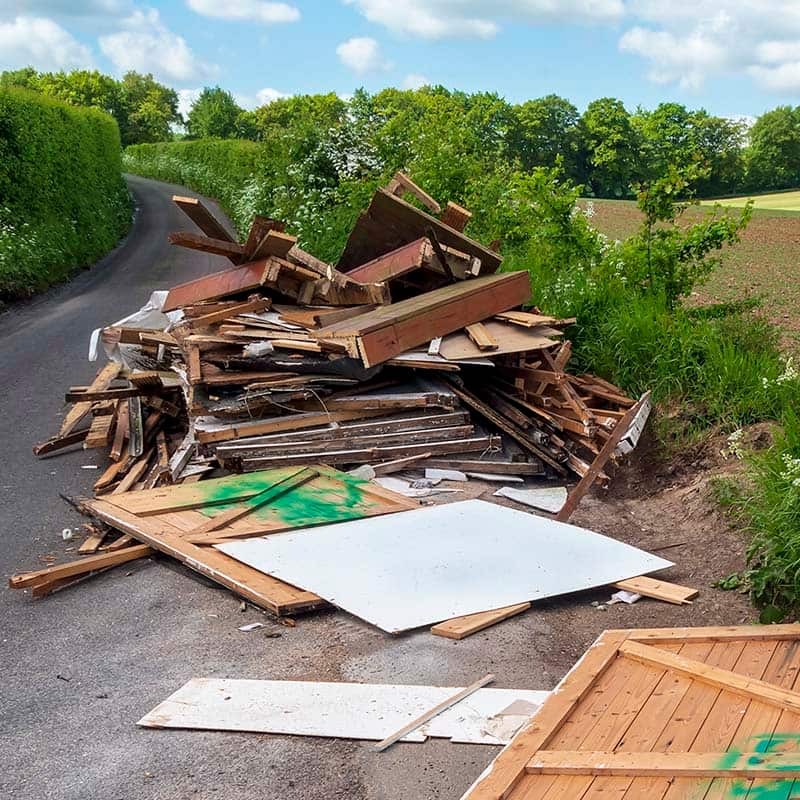
Litter and fly tipping legislation
There are a number of key pieces of legislation that relate to litter and flytipping enforcement.
Littering
Key legislation: Section 87 EPA 1990.
Littering is a criminal offence, throwing down or dropping an item in any public open space is classed as littering. If a person is found guilty of the offence they can be issued with a fixed penalty notice of £80 or could potentially be prosecuted and risk a fine of up to £2,500.
The Environmental Protection Act 1990 section 87 defines the offence of leaving litter.
Flytipping
Key legislation: Section 33 EPA 1990.
Flytipping is also a criminal offence, flytipping is the illegal dumping of waste onto land that has no licence to accept it – from a bin bag of household rubbish to large quantities of tyres or construction waste. If a person is found guilty of the offence they can be issues with a fixed penalty notice of £200 or could potentially be sentenced to imprisonment and risk a fine of up to £40,000.
The Regulatory Reform (Scotland) Act 2014 gives SEPA powers to fixed penalties of up to £2,500 and variable monetary penalties up to £40,000.
Local - Fixed Penalty Notices
Key legislation: (Section 88 (Litter) & Section 33A (Flytipping) EPA 1990).
A fixed penalty notice (FPN) is used to give the offender the opportunity to discharge liability to conviction of the offence by paying the fixed penalty. If the offender chooses to reject the FPN or fails to pay in notice period then the matter can be referred to the courts and potential prosecution for the offender.
Who can issue them?
Authorised officers can issue FPNs:
- Litter
- Local Authorities
- Police Scotland
- Loch Lomond and Trossachs National Park
- Flytipping
- Local Authorities
- SEPA
- Police Scotland
- Loch Lomond and Trossachs National Park
What happens if the FPN isn’t paid?
If an FPN is rejected or is not paid within the notice period the issuing authority can refer the case to the Crown Office and Procurator Fiscal Service who will make decision on the case, if the decision is to take further action the case can be recommended for a fiscal fine or prosecution through the Scottish Court Service.
Code of Practice on Litter and Refuse (Section 89 EPA 1990)
Section 89 of the Environmental Protection Act 1990 (EPA 1990) places a duty on certain Duty Bodies and Statutory Undertakers to (1) ensure publically accessible land for which they are responsible for is kept clear of litter and refuse and (2) to keep roads clean. Find out who is responsible here.
If a Duty Body or Statutory Undertakers fails to meet these duties a member of the public can apply to have a Litter Abatement Order imposed on the offending body.
Litter Control Areas (Section 90 EPA 1990)
Local Authorities can designate certain types of littered land to which the public have access as Litter Control Areas if they consider that the presence of litter or refuse on that land is detrimental to the amenities of the area and is likely to remain so.
This places a duty on each occupier of that land to ensure that the land he occupies is kept clear of litter and refuse, so far as is practicable.
The types of land that can be designated as Litter Control Areas include car parks, retail parks, business parks, industrial estates, cinemas, bingo halls, beaches, marinas, amusement arcades, motorway service stations and picnic areas.
Full details can be found here: http://www.legislation.gov.uk/uksi/1991/1325/made
Litter Abatement Orders (Section 91 EPA 1990)
A Litter Abatement Order is an order which can be imposed on a Duty Body or Statutory Undertaker through court proceedings by a member of the public who has evidenced that the body has failed to meet the duties to keep land clear of litter and refuse and to keep roads clean under section 89 of the EPA 1990. A Litter Abatement Order can be issued under Section 91 of the EPA 1990.






